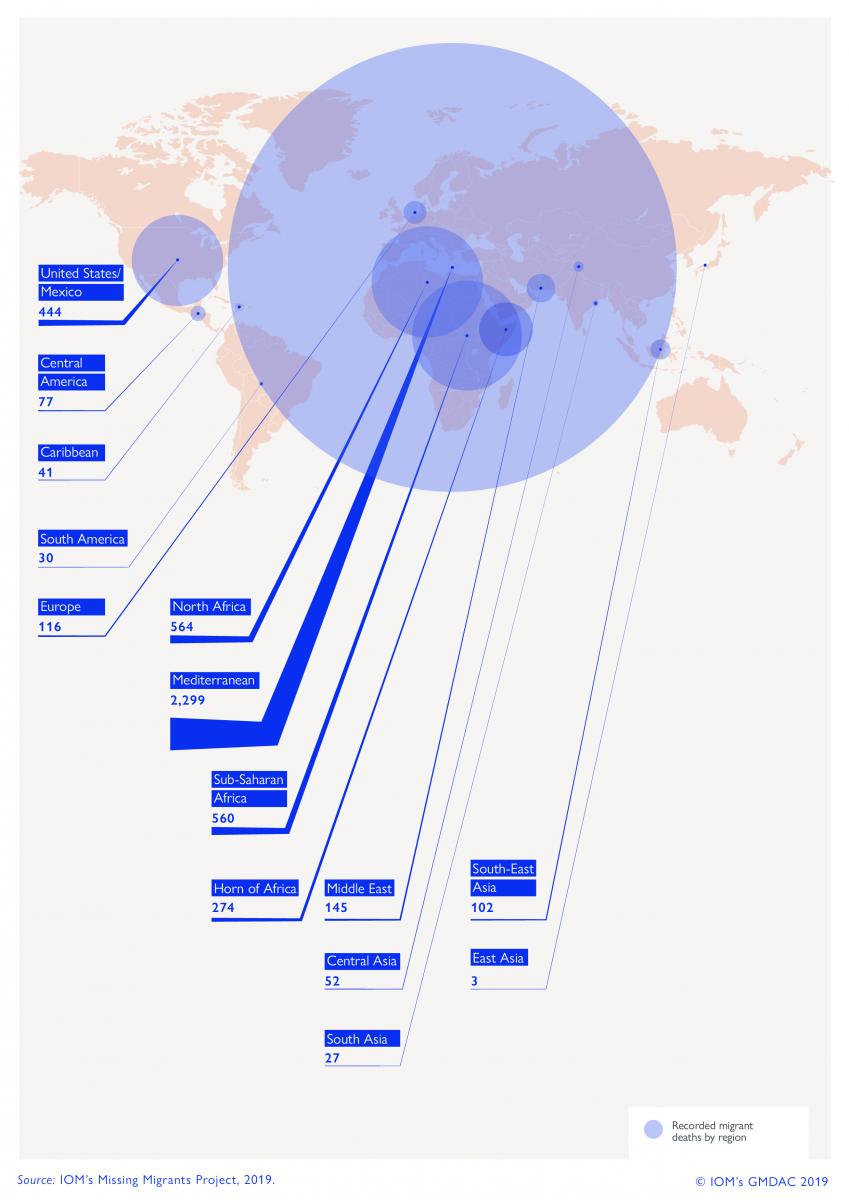-
Who We Are
WHO WE AREEstablished in September 2015, the International Organization for Migration’s Global Migration Data Analysis Centre was set up to respond to calls for better international migration data and analysis. Data are key to inform migration governance, improve programming and promote a better public understanding of migration.
About
About
IOM Global
IOM Global
-
Our Work
Our WorkData is key to inform migration governance, improve programming and promote a better public understanding of migration. GMDAC works toward this purpose through activities in knowledge management, data capacity-building and innovation, and data collection and analysis.
Areas of Work
Areas of Work
Projects
Projects
- Data and Resources
- Take Action
The Missing Migrants Project tracks deaths of migrants and those who have gone missing along migratory routes across the globe. The research behind the project began following two shipwrecks off the coast of Lampedusa in October 2013, in which nearly 400 migrants lost their lives. Since then, the Missing Migrants Project has developed into an important hub of data and information, which is used widely by media, policy-makers, and researchers. The Missing Migrants Project hosts the only existing global database on migrant deaths.
More than 44,000 migrants around the world have lost their lives since the project began in 2014. More than half of these deaths were recorded in the Mediterranean Sea, which has seen a devastating spike in deaths in recent years. The Missing Migrants Project collaborates with various government and non-government entities to collect data, and also draws on media and other available sources of information.
The outcomes of the Missing Migrant Project include:
- The Missing Migrants database and website, with records of migrant deaths and disappearances since 2014, research and analysis and resources for families searching for missing loved ones
- Regular infographics, policy briefs and “Fatal Journeys” report series on migrant deaths
- Expert seminars on issues of concern, including on identification and tracing of dead and missing migrants
- Network-building to collect better quality data and to advocate for better management of the dead, improved identification of the dead, and support to families of the missing
- Recorded dead and missing migrants around the world, 2018
-

Source: IOM Missing Migrants Project. Data obtained from local authorities (coast guards, sheriff’s offices, medical examiners), interviews with survivors provided by IOM field offices, United Nations High Commissioner for Refugees (UNHCR), nongovernmental organizations (NGOs) and media reports.
Please visit missingmigrants.iom.int/ for more information and updates.
Note: This project receives funding from the United Kingdom’s Department for International Development (DFID); however, the views expressed do not necessarily reflect the UK government’s official policies.